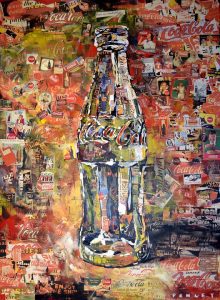The Wedding Banquet Review: A Muddled Gay Comedy That Plays It Too Straight
Many remakes often tread a fine line between homage and redundancy, sometimes failing to capture what made the original compelling. The Wedding Banquet, a reimagining of Ang Lee’s 1993 classic, is one such example. With a fresh setting in 2025 Seattle, director Andrew Ahn’s adaptation grapples with contemporary norms and societal expectations yet struggles to find its comedic footing.
A Familiar Setup with a Modern Twist
At its heart, the story revolves around a bisexual Taiwanese immigrant, who finds himself in a predicament that forces him to confront his identity and family expectations. The original film centered on a lavish, emotionally superficial wedding meant to appease visiting parents. Ahn’s version, co-written with James Schamus, attempts to update this narrative while navigating the complexities of modern relationships.
Lee (Lily Gladstone) and Angela (Kelly Marie Tran) are committed but unmarried lesbians undergoing their second round of expensive IVF. Their dreams of parenthood are complicated by economic logistics and the pressures of societal expectations. Chris (Bowen Yang), Angela’s best friend, and his boyfriend Min (Han Gi-chan) further complicate matters when Min proposes a marriage of convenience for a green card, launching a comedic deception that has the potential for uproarious situations.
The Comedic Elements Fall Flat
However, despite Ahn’s best efforts, the film often shies away from the comedic opportunities its premise affords. Ahn’s reluctance to lean into humor detracts from the narrative. Instead of an uproarious farce reminiscent of The Birdcage, the film takes a rather somber approach, particularly when Min’s grandmother Ja-Young (an Oscar-winning performance from Youn Yuh-jung) makes a surprise visit.
This shift creates an odd tonal imbalance that leaves the audience in a state of confusion. As events unfold, the film’s pacing slows considerably, dragging its way through an almost funereal atmosphere. Even when comedy is presented, the movie often feels weighed down by dramatic undertones that overshadow potential levity.
Engaging with Relationships
The core of The Wedding Banquet lies within its depiction of relationships—both romantic and platonic. Chris grapples with commitment issues, extending his grad school years while Angela’s relationship with her overbearing mother May (Joan Chen) adds another layer of complexity. Rather than showcasing the humor inherent in these dynamics, Ahn opts for a more serious exploration. While this can be refreshing, it often results in a missed opportunity for the biting wit and chemistry that could shine through.
One notable exception is a brief yet comedic bedroom scene that allows Yang to showcase his comedic prowess—a nod to the humor that could have flourished throughout the film. Yet, despite these flashes of potential, the overall tone reverts quickly back to guilt-ridden malaise, ultimately leaving viewers wanting more.
A Film with Heart But Lacking Humor
While taking its material seriously has benefitted Ahn in previous projects like Driveways, it seems that The Wedding Banquet lacks the right balance between humor and gravity. Visually, the film maintains a polished indie aesthetic, but the underdeveloped setups often muffle any intended punchlines or emotional payoffs, leading to a stifled cinematic experience.
In a film centered around commitment and family, the strength of Gladstone and Tran’s performances emerges amidst the chaotic undertones of the film. Their chemistry is palpable, and their exploration of divergent desires regarding parenthood mirrors real-life complexities. Yet the film’s inability to embrace its comedic potential hampers its effectiveness—leading to a journey that feels more tedious than transformative.
Final Thoughts: A Missed Opportunity
Ultimately, The Wedding Banquet feels like a film caught between two worlds—too serious for a comedy yet too comedic for a true drama. Its attempt at modernizing a beloved classic may provide moments of relational reflection, but it too often dilutes the comedy, leaving much to be desired.
In a landscape ripe for LGBTQ representation and humor, it’s disheartening to see such vibrant material rendered subdued. While Ahn’s reimagining brings a contemporary lens to a classic tale, it may not resonate as deeply as intended. Perhaps The Wedding Banquet serves as a reminder of the delicate balance necessary in storytelling—one that ideally should celebrate both the joys and heartaches of life with equal fervor.
For a deeper dive into the world of queer cinema and remakes, check out our list of must-watch films that explore these vibrant narratives.






